Going Orange with Sweetpotato in Malawi How the International Potato Center is scaling up sweetpotato through agriculture and nutrition in Malawi
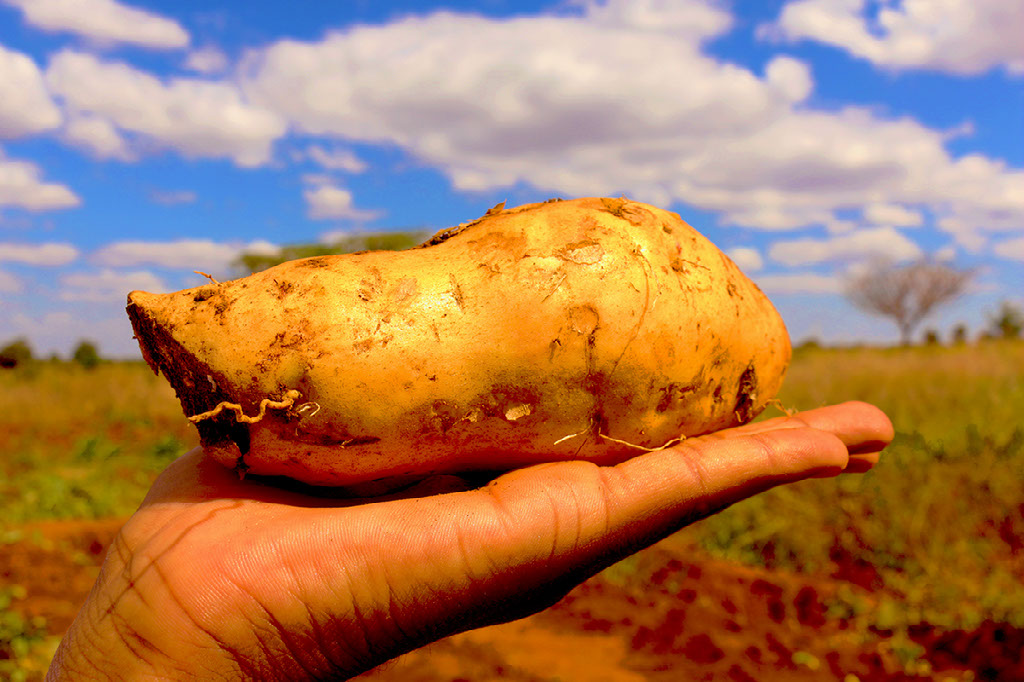
The sweetpotato has huge potential to contribute to food security, better nutrition and livelihoods in many parts of the developing world. The International Potato Center is developing and testing technologies and delivery mechanisms that are capable of fulfilling this potential. In particular, the success of biofortified orange-fleshed sweetpotato (OFSP) in Africa exemplifies what is possible in terms of improving the lives for the many millions of people vulnerable to malnutrition, specifically to vitamin A deficiency.
In sub-Saharan Africa, CIP is implementing an initiative called Scaling up Sweetpotato through Agriculture and Nutrition (SUSTAIN) to spread the nutrition benefits of biofortified OFSP to more farmers. The program aims to reach 1.2 million households with children under 5 years across four countries: Kenya, Malawi, Mozambique and Rwanda through mutually-reinforcing incentives to increase adoption of OFSP, consumption of Vitamin-A-rich foods, and diversification of OFSP utilization.
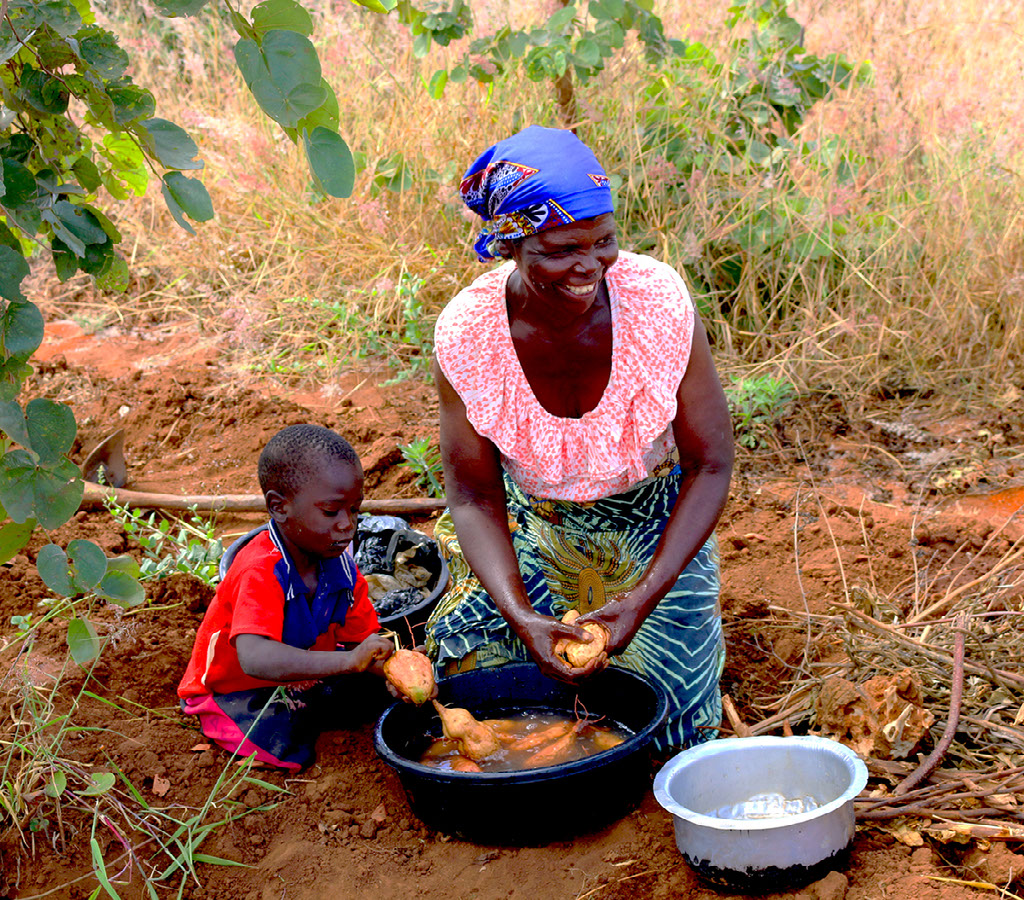
To accomplish this, CIP is using a three-pronged approach: marketing quality planting material of improved varieties, nutrition education and counseling, and commercial processing and fresh root markets.
In Malawi, sweetpotato is under-appreciated in its current and potential role to contribute to sustainable food security. And while a number of high yielding, Vitamin-A-rich OFSP varieties have been bred and released, most farmers do not yet have access to them. CIP works to get the new sweetpotato varieties to farmers across Malawi, and to increase the productivity, production, consumption and processing of OFSP.
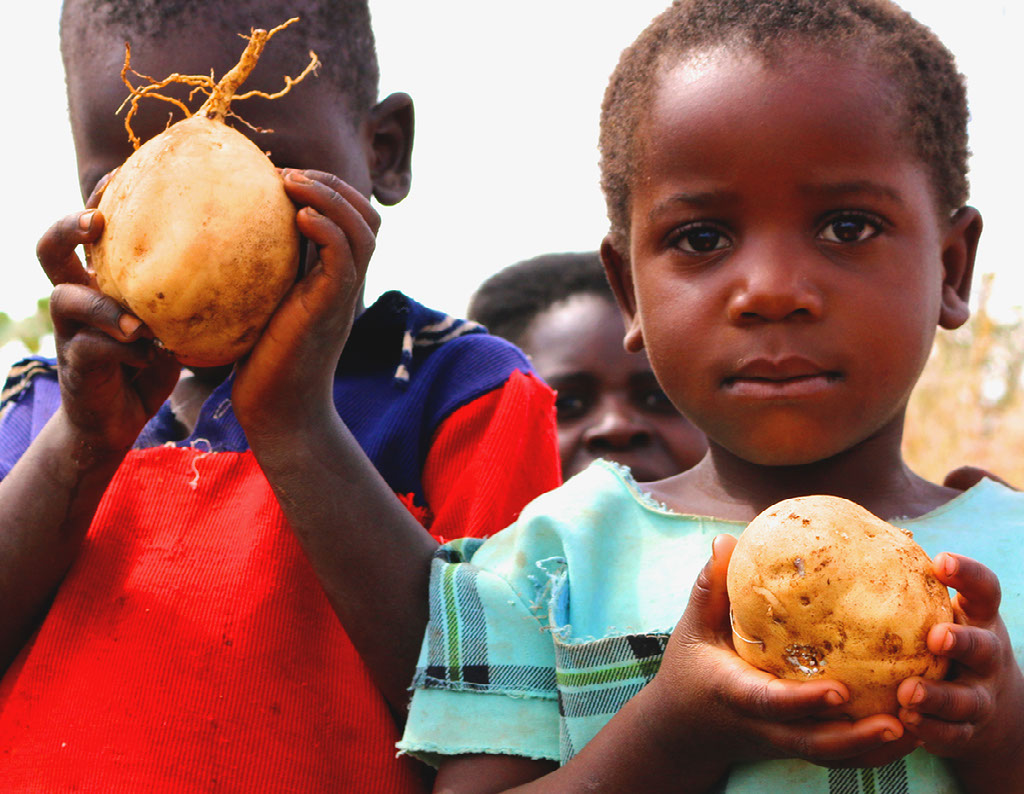
CIP will work to increase the sale of OFSP, improve producer incomes, and create a stable supply in the urban market. Working with commercial vine multipliers, CIP will work to improve linkages and information flow in the sweetpotato planting material supply chain in Malawi. This combination of variety, increased yields, greater area under production and a strengthened planting material system will result in impact at scale.
In Malawi, CIP works closely with the Department of Agricultural Research Services in Bvumbwe as the key research partner and with Concern Worldwide as the key development partner (other important NGO partners include Concern Universal and Self Help Africa). Concern Worldwide supports the program’s nutrition work and field activities and provides opportunities to engage with the Scaling Up Nutrition movement and the Civil Society Organization for Nutrition Alliance, for which they are the lead NGO.
Initially, this project was focused on southern Malawi, where there is high sweetpotato production, as well as in areas where it is a minor crop but where the potential exists to increase production and achieve nutrition impacts. SUSTAIN is now expanding into central and northern Malawi.
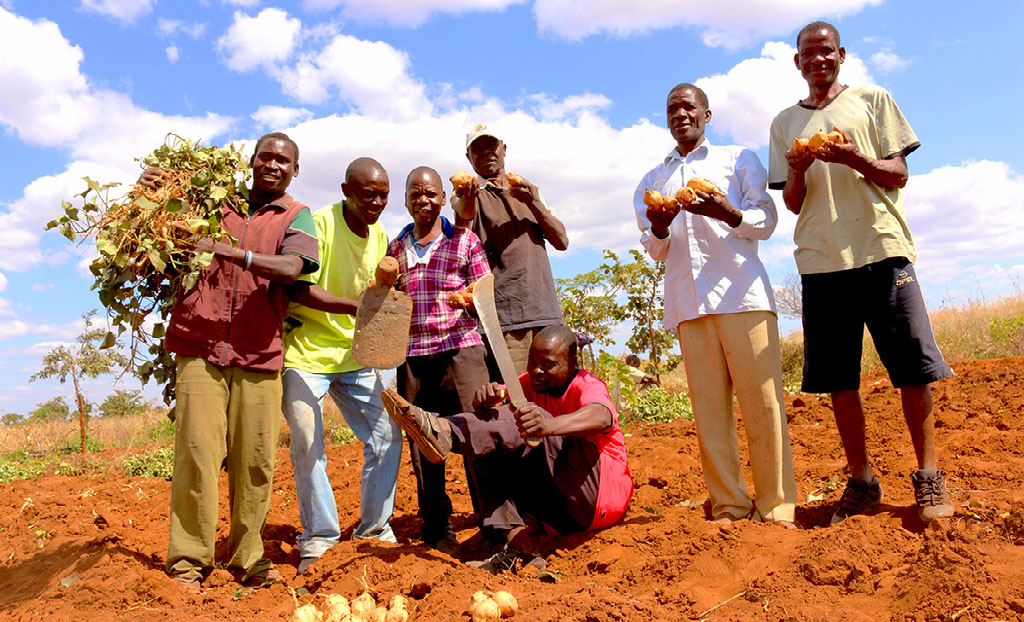
SUSTAIN will exploit significant opportunities in Malawi to increase OFSP production through improving farmer access to vines (planting material) of five recently released OFSP varieties: Chipika, Kadyaubwerere, Kaphulira, Mathuthu, and Anaakwanire, as well as the already popular Zondeni variety.
SUSTAIN also implements nutrition education and counseling interventions through community-level CARE groups and through work with our development partner Concern Worldwide.
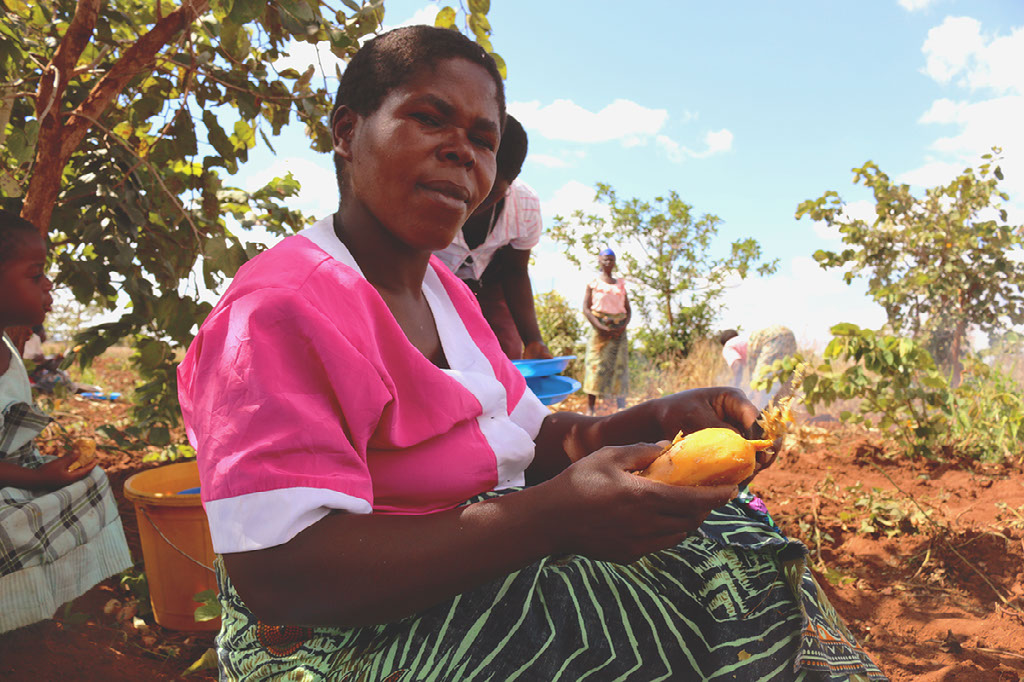
Scaling up Sweetpotato through Agriculture and Nutrition (SUSTAIN) is a five-year partnership (2013-2018) coordinated by the International Potato Center (CIP) and financed by the UK Department for International Development to spread the nutrition benefits of biofortified OFSP to more farmers. The program aims to reach 1.2 million households with children under 5 years across four countries: Kenya, Malawi, Mozambique and Rwanda through mutually-reinforcing incentives to increase adoption of OFSP, consumption of Vitamin-A-rich foods, and diversification of OFSP utilization.
A photo story by Sara Quinn, Regional Communications Specialist, International Potato Center